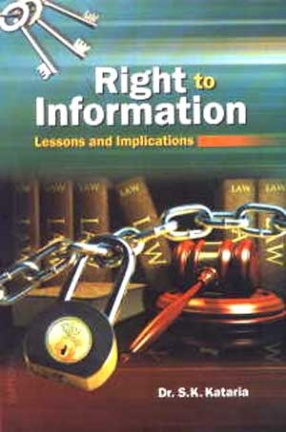Information is the 'currency and oxygen of democracy'. No one can enjoy his or her right to expression without having accessibility to the information, strictly and especially available with the public authorities. The free flow of information and ideas ensures success of democracy and effectiveness of human rights. The fundamental democratic values are directly interrelated with the concept of welfare state and its functional cum instrumental set up i.e. civil services. The movements towards Right to Information (RTI) or Freedom of Information or right to Access Information have been peoples struggle for good governance. RTI is one of the core tools to achieve the goals of good governance. In fact, it has become the right to tight the administration'.
The right to Information Act, 2005 of Republic of India is being considered as 'Magna Carta' of common man of the country. The present book deals with evolution of RTI in India as well as across the world, provisions of RTI Act, 2005, success stories of RTI, Role of RTI in reforming the Indian Administrative System, views of Second Administrative Reforms Commission of RTI, and Lessons and Implications of RTI in India. Besides this, the author has also annexed his experiences with the public authorities for seeking information on various issues.








There are no reviews yet.